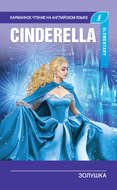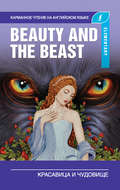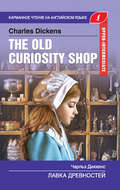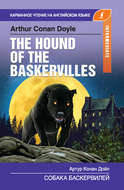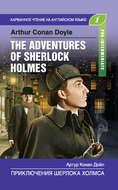Buch lesen: "Портрет Дориана Грея / The Picture of Dorian Gray"
Иллюстрации М. М. Салтыкова
© Матвеев С.А., подготовка текста, комментарии, словарь
© ООО «Издательство АСТ», 2019

Chapter 1
The studio was filled with the rich smell of roses. Lord Henry Wotton1 was sitting on the divan and smoking innumerable cigarettes. Through the open door came the distant sounds of the London streets.
In the centre of the room stood the full-length portrait2 of a young man of extraordinary personal beauty, and in front of it, some little distance away3, was sitting the artist himself, Basil Hallward4.
As the painter looked at the gracious and comely form he had so skilfully mirrored in his art, a smile of pleasure passed across his face. He suddenly started up, and closing his eyes, placed his fingers upon the lids.
“It is your best work, Basil, the best thing you have ever done,” said Lord Henry. “You must certainly send it next year to the Grosvenor5. The Academy is too large and too vulgar.
The Grosvenor is really the only place to exhibit a painting like that.”
“I don’t think I shall send it anywhere,” the painter answered, moving his head in that odd way that used to make his friends laugh at him at Oxford. “No, I won’t send it anywhere.”
Lord Henry elevated his eyebrows and looked at him in amazement through the thin blue wreaths of smoke6. “Not send it anywhere? My dear fellow, why? What odd people you painters are! A portrait like this would set you far above all the young men in England7.”
“I know you will laugh at me,” Basil replied, “but I really can’t exhibit it. I have put too much of myself into it8.”
Lord Henry stretched himself out on the divan and laughed. “Too much of yourself in it! Upon my word, Basil, this man is truly beautiful. Don’t flatter yourself, Basil: you are not in the least like him9.”
“You don’t understand me, Harry,” answered the artist. “I know that perfectly well. Indeed, I should be sorry to look like him. I am telling you the truth. It is better not to be different from other people. The stupid and ugly have the best of this world. Dorian Gray10—”
“Dorian Gray? Is that his name?” asked Lord Henry walking across the room towards Basil Hallward.
“Yes, that is his name. I didn’t intend to tell it to you.”
“But why not?”
“Oh, I can’t explain. When I like people immensely, I never tell their names to any one. When I leave town now I never tell my people where I am going. If I did, I would lose all my pleasure. It is a silly habit, I dare say. I suppose you think that’s very foolish?”
“Not at all,” answered Lord Henry, “not at all, my dear Basil. You seem to forget that I am married, so my life is full of secrets, I never know where my wife is, and my wife never knows what I am doing. When we meet we tell each other the most absurd stories with the most serious faces.”
“I hate the way you talk about your married life, Harry,” said Basil Hallward, walking towards the door that led into the garden. “I believe you are really a very good husband, but that you are ashamed of it. You are an extraordinary fellow. You never say a good thing, and you never do a wrong thing. Your cynicism is simply a pose.”
“Being natural is simply a pose,” cried Lord Henry, laughing; and the two young men went out into the garden together. After a pause, Lord Henry pulled out his watch.
“I am afraid I have to go, Basil,” he said in a quiet voice. “But before I go I want you to explain to me why you won’t exhibit Dorian Gray’s picture. I want the real reason.”
“I told you the real reason.”
Die kostenlose Leseprobe ist beendet.

